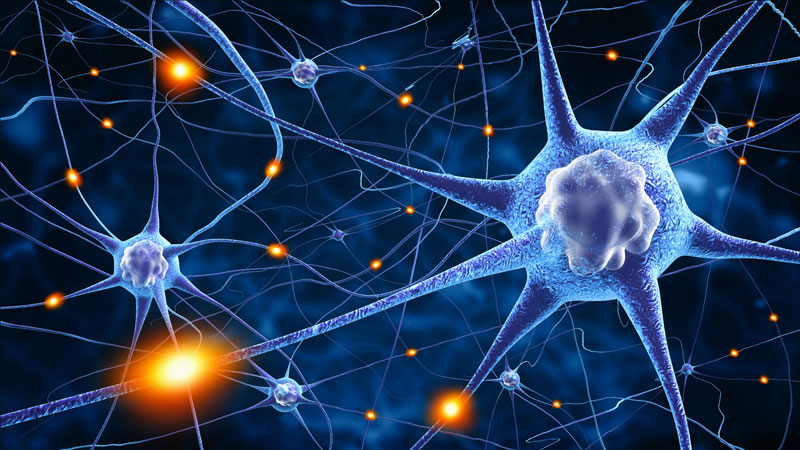Just as weightlifting and physical exercise build your muscles, when you’re learning the nerve cells in your brain are growing with mental exercise and these neurons are developing greater connectivity.
The growth and rewiring of our brain cells is called neuroplasticity. As we learn, our brain literally remodels itself based on our new experiences.
Until recently, the conventional thinking was that our brains were hardwired at birth and therefore unchangeable. In actuality, our brains are like malleable plastic that is constantly being reshaped by our daily experiences.
You are the architect of your brain
Ultimately, you are the architect of your brain. When you change your beliefs, learn something new or become mindful of your habitual reactions to unpleasant emotions, you actually alter the neurochemistry and the structure of your brain.
This terrific infographic below details how learning and neuroplasticity works. It also covers how we initially learn unhealthy habit that later turn into addictions and how we can unlearn and rewire our brains to be free of these unnecessary addictions.
Learning is much more than just receiving new information and gaining knowledge from other people. It’s also about the path of continuous growth and living a more optimal life where you are free from habitual addictions and better able to holistically learn from your direct experience.
Want to re-wire your brain for better focus, increased creativity, and more self-motivation? Watch my free webinar masterclass on Flow Psychology.
Rewiring your brain: habits, learning and neuroplasticity
It turns out you can teach an old dog new tricks. Here’s how the process of learning and neuroplasticity works:


If you want to view the high-res version of this infographic, you can view it here. This infographic was put together by Alta Mira, an addiction treatment center in Los Angeles, California.
I hope that the insights you generate from this infographic on learning and neuroplasticity can help you improve the quality of your daily experience.
- Flow Experience Design: 20 Flow Triggers For Peak Performance - May 10, 2025
- How The Muse S Athena Works For EEG And fNIRS Neurofeedback - April 24, 2025
- The 10 Best Pomodoro Timer Apps For Remote Workers - April 11, 2025





 This website uses cookies to improve your web experience.
This website uses cookies to improve your web experience.
I think an addiction is an addiction regardless if it’s good or bad food can be an addiction to much of one thing is never good
I have recently been learning that younger people are using non addictive smart drugs to enhance their cognitive function and it is believed that companies may adopt this in the coming years.
Do we really believe that companies will support this concept?
I fully support the addition of snacks that support brain function though.
I think companies want healthy and productive workers so I don’t see why they wouldn’t support smart drugs. That being said, the smart drugs that do work usually are addictive.
In the short-term they are very effective but over the long-term, a healthy lifestyle with an excellent diet, daily exercise, lots of reading and a meditation practice will outperform any stimulant or smart drug.
Whilst this model looks very impressive, and it is, the key thing it leaves out, in terms of alcoholism or addiction, is the emotional pain a person is in. None of the activities it suggests or recommends will adequately remove the pain. Hence this is not an effective method for relapse prevention unless the emotional pain – the anger, the fear and most importantly the guilt – is effectively removed. Only then may these practices of changing mental habits be useful.
That emotional pain is definitely a driving factor behind addiction and is something that has to be addressed for someone to overcome serious addiction.